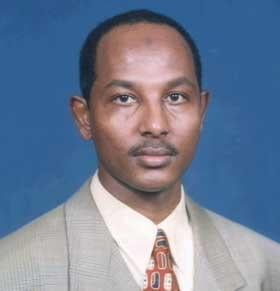
The Al Jazeera cameraman released from Guantanamo Bay after six years detention will work for the broadcaster again, according to its director general.
The US authorities released Al Jazeera cameraman Sami Al-Haj from Guantanamo this week after six years detention.
Despite reports that the Sudanese government had banned Al-Haj from working as a journalist and from leaving his native Sudan in exchange for his release, Al Jazeera said he would resume work with the broadcaster.
Wadah Khanfar, Al Jazeera’s director-general said: “Sami will continue with Al Jazeera, he will continue as a professional person who has done great jobs during his work with Al Jazeera.”
Al-Haj, the only journalist detained in Guantanamo Bay, arrived in Sudan today after what the US embassy termed a ‘detainee transfer”. The Sudanese justice minister later confirmed that the cameraman would not face charges, according to Al Jazeera English.
Pakistani security forces at the Afghan-Pakistan border arrested Al Haj in December 2001 while on assignment to cover the war against the Taliban. He was handed over to the US Army one month later, who accused him of being an al-Qaida operative despite having a valid visa to work in Afghanistan. He was transferred to Guantanamo on June 13, 2002.
The US Army made a number of accusations against him including secretly interviewing Osama Bin Laden and gun smuggling for al-Qaida but no evidence was ever revealed and no charges have ever been brought against him. Al-Haj’s lawyer Clive Stafford Smith had said that Al Jazeera were considering a defamation case against the US government.
In a front page story, Press Gazette reported last September fears that al-Haj was near death after being on hunger strike since the previous January. Stafford Smith told Press Gazette at the time that al-Haj was “no more a terrorist than my granny”.
His case was seen by some Middle East commentators as punishment by the US against Al Jazeera for its broadcasts.
Accordinig to Stafford Smith, the US had accused Al-Haj of receiving terrorist training from Al Jazeera in the use of a camera. “Each year they change the allegations against him, and each year they allege something new.”
Al-Haj began a hunger strike on January 7, 2007, in protest against his detention and to demand that his rights be respected. Stafford-Smith, who visited him in July last year, said he had lost about 40 pounds and was suffering from serious intestinal problems. He said that Al-Haj lost more weight because of the guards’ decision to force feed him just once a day during Ramadan between 12 September and 3 October ‘out of respect for his religious belief”.
Speaking to Al Jazeera English after his release, Al-Haj said that for more than seven years Guantanamo inmates did not have a chance to defend their case in court. He said: “In Guantanamo … rats are treated with more humanity. But we have people from more than 50 countries that are completely deprived of all rights and privileges. And they will not give them the rights that they give animals.”
Robert Ménard, Secretary General of Reporters Without Borders said: “Sami Al-Haj should never have been held so long. US authorities never proved that he had been involved in any kind of criminal activity. This case is yet another example of the injustice reigning in Guantanamo. The base should be closed as quickly as possible.”
The arrival of al-Haj back in Sudan coincides with World Press Freedom day which is tomorrow (Saturday)
Email pged@pressgazette.co.uk to point out mistakes, provide story tips or send in a letter for publication on our "Letters Page" blog

